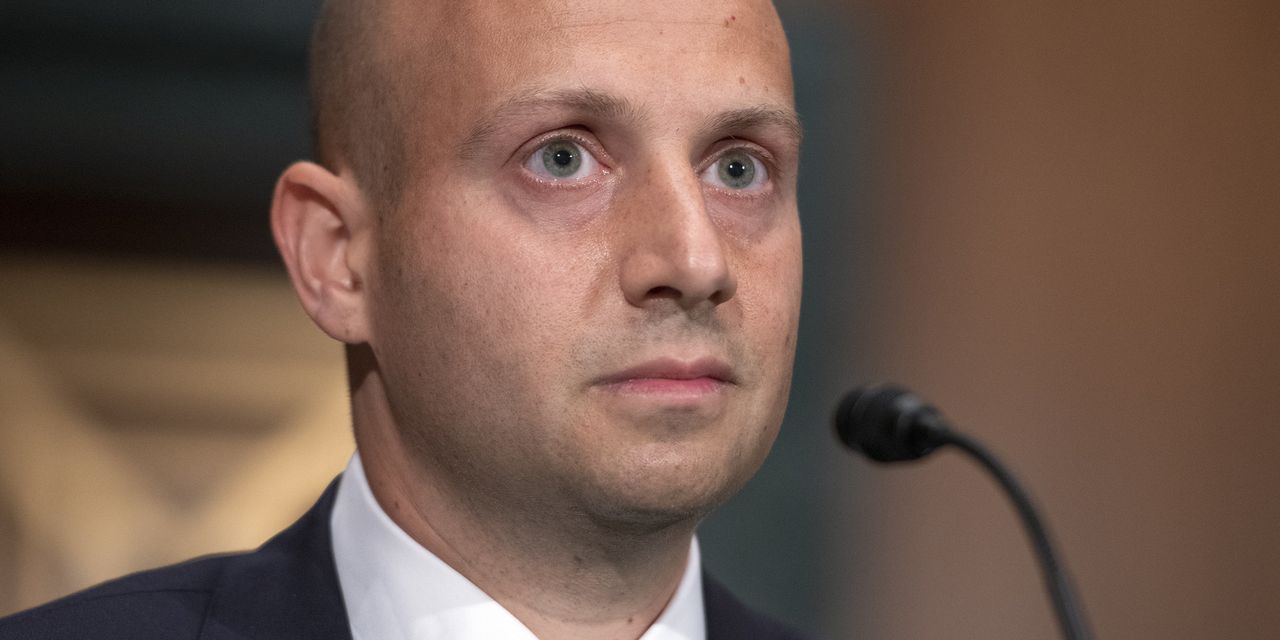
Securities and Exchange Commission member Elad Roisman plans to leave the market regulator by the end of January, giving Democrats a bigger majority at an agency pursuing an ambitious and sometimes politically divisive policy agenda.
Mr. Roisman joined the five-member SEC as a Republican commissioner in September 2018, having served as chief counsel for Republicans on the Senate Banking Committee before that. He briefly served as the SEC’s acting chairman at the end of the Trump administration.
With Mr. Roisman’s departure, the SEC will have three Democrats, including Chairman Gary Gensler, and one Republican member. The move isn’t expected to change Mr. Gensler’s ability to advance his policy priorities, since Democrats already had the majority.
Mr. Roisman, 40 years old, increasingly opposed Mr. Gensler’s policy moves, including several recent measures proposing changes to money-market mutual funds, corporations’ stock buybacks, and derivatives that are used by hedge funds and some other investors.
He also questioned Washington’s focus on payment for order flow, an incentive system that allows retail brokerages to eliminate trading commissions. Under that system, brokerages earn money by sending many client orders to high-speed trading firms, which trade with them. Brokerages say the practice saves money for investors, while Mr. Gensler says it creates a conflict of interest for brokers and redirects trading volume away from stock exchanges.
In a recent speech, Mr. Roisman argued payment for order flow is effectively regulated and had become an undeserving boogeyman in the debate over free trading and meme stocks. “The amount of vitriol against payment for order flow reminds me of the old Washington adage: Never let a crisis go to waste,” he said in October.
Mr. Roisman recently criticized Mr. Gensler’s latest semiannual policy agenda, writing it is “brimming with plans to redo recently completed rules, add new regulatory obligations, and constrain investor choice.” The list should have included ideas to streamline capital-raising for companies and entrepreneurs, Mr. Roisman said.
The agenda includes ideas to require more disclosure from public companies about commercial risks and opportunities created by climate change, as well as stricter oversight of private-equity firms and larger broker-dealers that hold customers’ securities and funds.
SEC commissioners have limited ability to decide the agency’s agenda, which is set by the chairman, who also directs the agency’s staff of 4,400.
Mr. Gensler, who was nominated earlier this year by President Biden, has moved swiftly to use the SEC’s regulatory levers to advance progressive goals that Democrats in other parts of the government have struggled to enact.
One of his central objectives, he says, is to make the capital markets less costly for companies raising money as well as for ordinary investors saving for retirement. In an interview earlier this year, Mr. Gensler said that might mean lower profits for Wall Street.
Republicans have accused the SEC of embarking down a path of regulatory overreach, and parts of the financial industry have lined up against Mr. Gensler’s plans.
Mr. Roisman didn’t disclose his next career move in a brief statement issued Monday that announced his intent to resign from the SEC. He worked for the New York Stock Exchange’s parent company earlier in his career, gaining expertise on the rules and infrastructure of the U.S. stock market.
—Paul Kiernan contributed to this article.
Write to Dave Michaels at [email protected]
Copyright ©2021 Dow Jones & Company, Inc. All Rights Reserved. 87990cbe856818d5eddac44c7b1cdeb8








